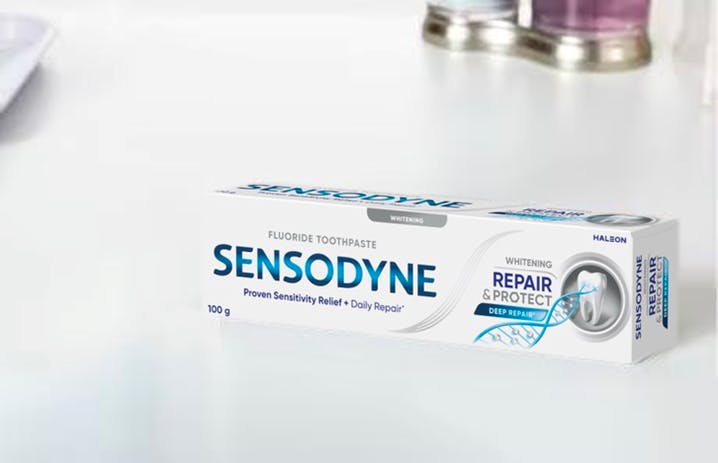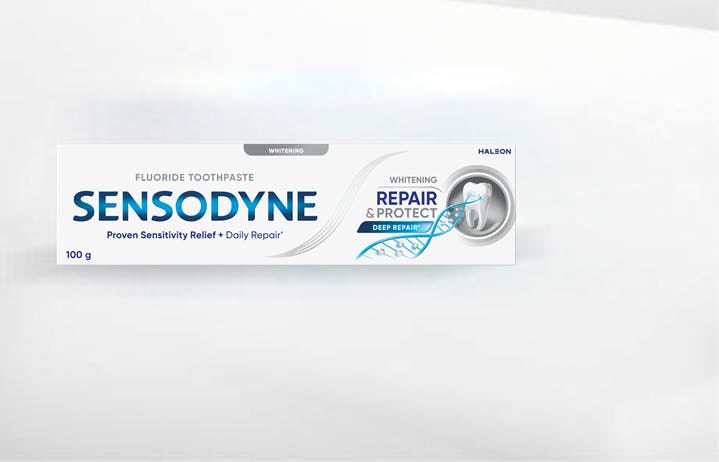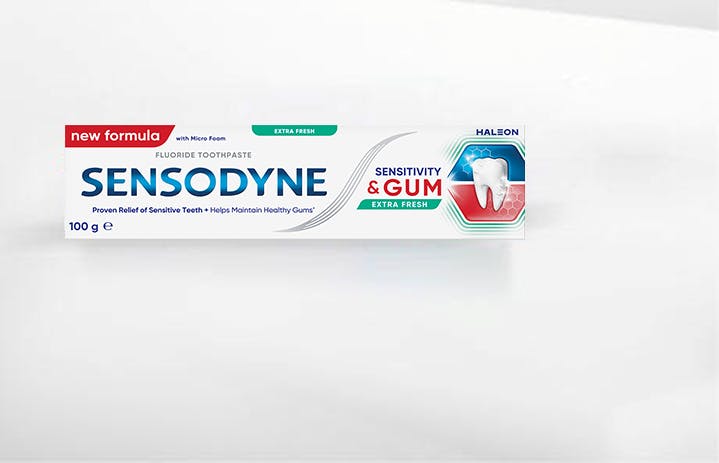Heat and Cold Sensitivity
Have you ever been excited to tuck into a delicious bowl of ice cream, only to wince in pain when the cold hits your teeth? Or is it a hot cup of coffee that sets your teeth on edge? Whether it’s triggered by hot or cold, sweet or sour, tooth sensitivity can make it difficult to enjoy the foods you love. Read on to learn about what could be triggering your sensitive teeth.1
What causes sensitive teeth?1
There are a number of factors that can cause your tooth enamel to wear away, leading to tooth sensitivity. These include:
- Brushing your teeth too hard
- Grinding or clenching your teeth, usually at night while you are asleep
- Acidic drinks and foods
- Acid reflux and vomiting
Other factors that can cause tooth sensitivity include:
- Receeding gums, where the exposed root surfaces can trigger sensitivity
- Chipped, broken, or decayed teeth that can irritate the nerve
- Recent dental work such as restorations, crowns, fillings and a routine scale and clean. Your dentist will usually let you know if a treatment may cause sensitivity, and suggest options to help manage this.

What you can do to avoid sensitive teeth1
There are some simple things you can do to help minimise the discomfort of sensitive teeth:
- Use a specialist toothpaste like Sensodyne twice a day, every day.
- Brush and floss regularly and correctly. Ask your dentist or look at the Australian Dental Association website for more information here.
- Use a soft toothbrush and gentle brushing motion.
- Rinse your mouth with water after you eat or drink something acidic. Chew sugar-free gum afterwards and wait at least 60 minutes before brushing.
- See your dentist regularly for check-ups, and let them know if your teeth are sensitive – you’re not alone and your dentist is there to help, so don’t avoid appointments.

What your dentist can do for sensitive teeth
If your sensitive teeth are bothering you, book an appointment with your dentist to discuss options. Your dentist can identify the underlying cause of your sensitivity and recommend the best oral hygiene practices to help reduce your discomfort and maintain the health of your teeth.1,2
Depending on your circumstance, your dentist may suggest:2
- High fluoride treatment – this strengthens tooth enamel and can reduce pain
- Desensitizing or bonding – applying bonding resin to the sensitive root surfaces can treat exposed root surfaces
- Surgical gum graft – if your tooth root has lost gum tissue, a small amount of gum tissue can be taken from elsewhere in your mouth and attached to the affected site to protect exposed roots and reduce sensitivity
- Root canal – if your sensitive teeth cause severe pain and other treatments aren't effective, a root canal can treat the tooth's soft core (dental pulp). This is considered the most successful technique for eliminating tooth sensitivity.








